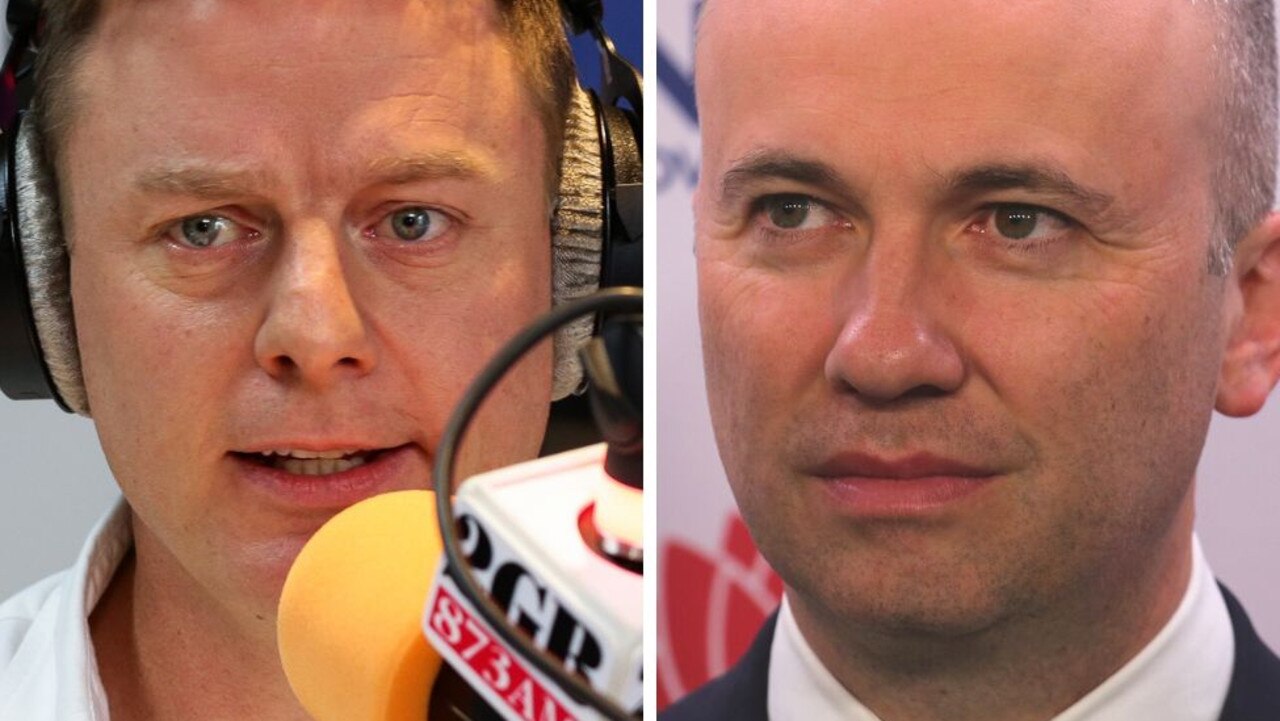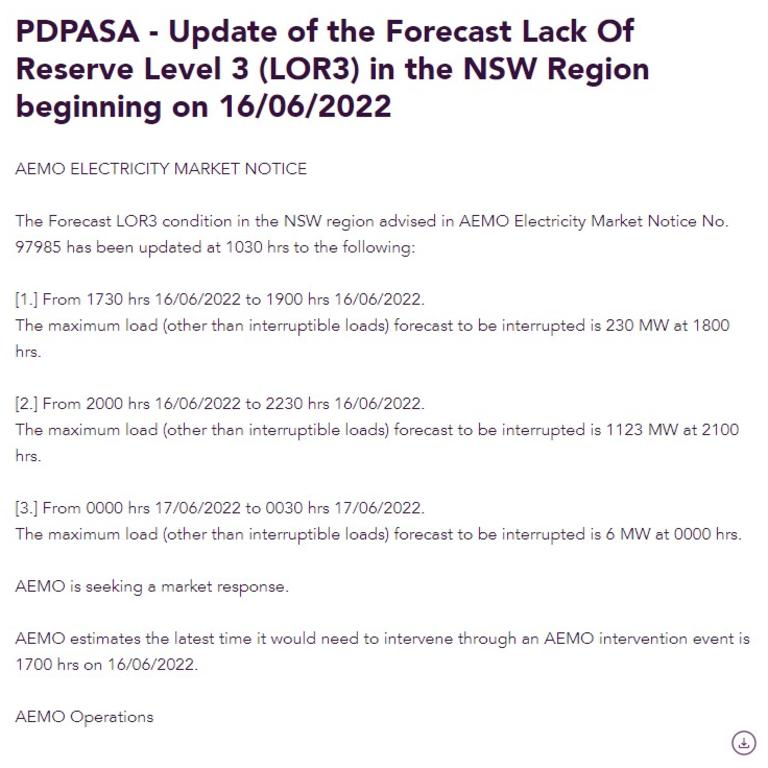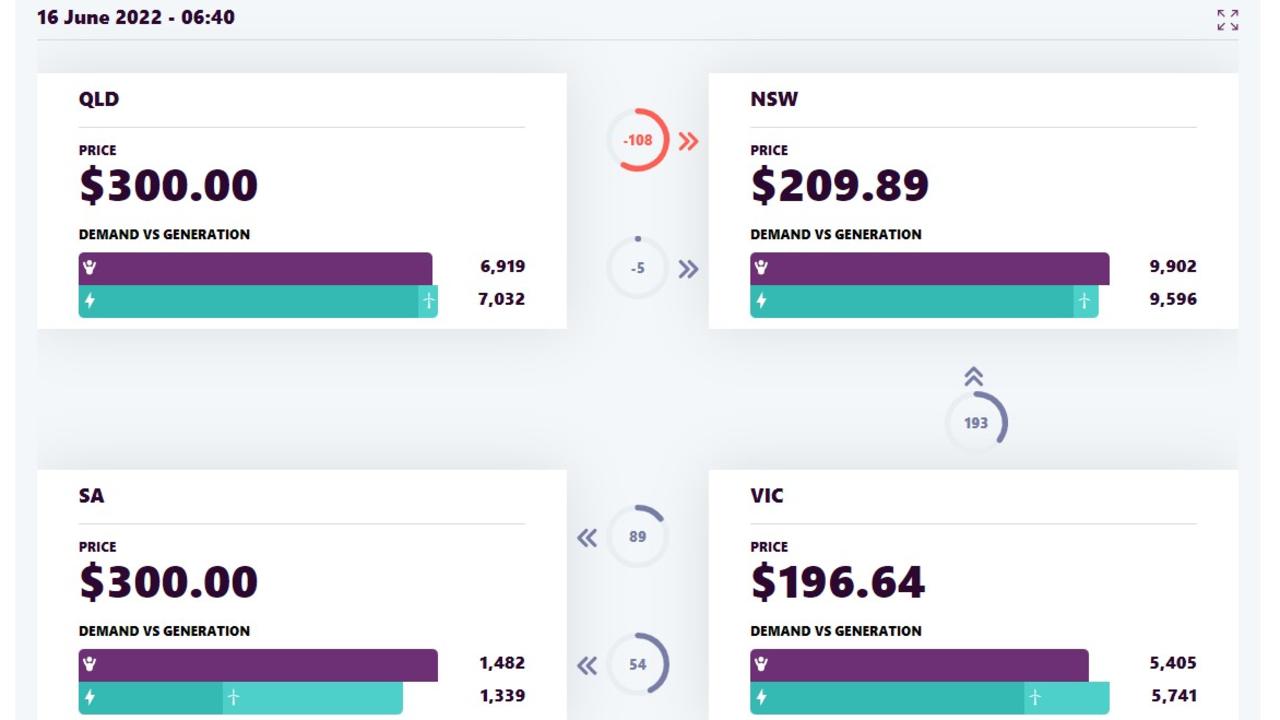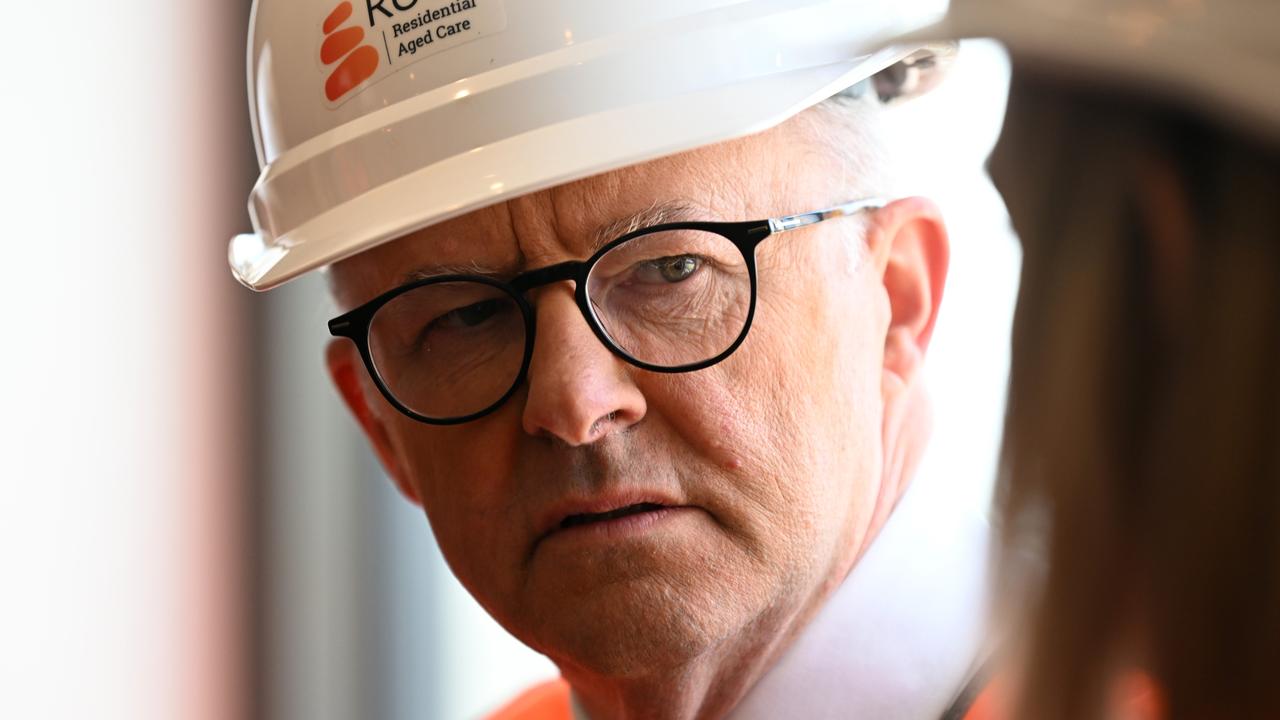No end for power crisis after AEMO suspends National Electricity Market
Radio host Ben Fordham and NSW Energy Minister Matt Kean have come to blows on air, as dwindling reserves have become an “operational reality”.
Radio host Ben Fordham has lashed the NSW Energy Minister as the state, among others, faces power shortages and black out fears.
This comes as more electricity shortage notices were issued overnight for Thursday, affecting NSW, Victoria, Queensland, Tasmania and South Australia.
Matt Kean, who has been in his role since 2019, said there were a mix of factors for the current crisis, including the war in Ukraine, the cold snap and malfunctioning generators, claiming he held no responsibility for the situation.
Stream more finance news live & on demand with Flash. 25+ news channels in 1 place. New to Flash? Try 1 month free. Offer ends 31 October, 2022 >

However, Fordham accused Mr Kean of “demonising coal” and refusing to upgrade existing coal plants. Claims which Mr Kean denied. The Energy Minister said the state should move towards new technologies that are insulated from global price shocks and unreliable equipment.
“I take responsibility for putting in a plan to make sure we don’t have these events in the future,” Mr Kean said.
“Last night showed exactly why we need to modernise our electricity system. We need to move to new technology that’s going to keep the lights on and drive prices down.”
The pair went on to argue about whether gas or coal was the best way to power the state’s electricity, with neither person withdrawing their comments.
The on-air war of words resulted in Mr Fordham saying: “If you’re such a genius, why are we in this mess?”
In response, Mr Kean said: “I always take responsibility … but I didn’t invade Ukraine, I didn’t make the generators old bits of equipment and I certainly didn’t make the weather cold”.
Lack of power becomes ‘operational reality’
According to Australian Energy Market Operator data, as of Thursday morning, demand was outstripping power generation in NSW and South Australia. Supply in Queensland, Tasmania and Victoria appeared to be covering demand.
By 11am, the AEMO had issued multiple Level 3 Forecast Lack of Reserve (LOR) notices for NSW, Victoria and Queensland.
The Level 3 LOR were forecast during the times of:
NSW: Wednesday from 5.30pm to 7pm, 8pm to 10.30pm and Wednesday midnight to Thursday 00.30am.
Victoria: Wednesday from 5.30pm to 7pm, 8pm to 10.30pm and Wednesday midnight to 00.30am.
South Australia: Thursday from 7am to 10am and 5.30pm to 8.30pm

Essentially, the warning signals that there is a greater demand of electricity than supply.
“This condition exists when the available electricity supply is equal to or less than the operational demand,” the AEMO website states.
“This means there are no reserve supplies available. Controlled load shedding may be required as a last resort to protect system security and prevent long-term damage to system infrastructure.
At 6.38am, an ‘Actual Lack of Reserve’ was also implemented in NSW from 6am to 7.30am. This occurs when the generators do not respond to previous notices and a lack of reserve energy “becomes an operational reality”.
Previously, all notices were ‘Forecast Lack of Reserves’ which is when calculations by the market operator predict a reduced amount of electricity reserves.

The precarious situation caused the AEMO to make the unprecedented move to suspend the National Electricity Market on Wednesday afternoon, meaning they will have the power to force generators (power suppliers) to bid electricity into the market.
Previously generators were accused of withholding power due to the AEMO implementing a $300 megawatt hour price cap, which would force them to operate at a loss.
The AEMO will continue negotiations today, in order to ensure energy supply is available for the coming weeks.
Speaking on ABC Breakfast, Chief Executive of the Australian Energy Council, Sarah McNamara was unable to give a timeline as to when the power crisis will subside.
“The market operator will be assessing the situation daily,” she said.
“We are hopeful it will be days rather than weeks in the current state.”
She did, however, stress that despite the “difficult situation” the “market operator is in control”.
Her remarks echoed those of the AEMO CEO Daniel Westerman. Announcing the suspension of the NEM on Wednesday, he refused to indicate when the volatile crisis might end, adding that it had become “impossible to operate the spot market in accordance with the rules”.
“We’ll reinstate the market once we’re confident we’re able to operate it,” he said.
‘Decade of denial and delay’
Speaking to media on Thursday, Prime Minister Anthony Albanese had sharp words for his predecessors and said the current situation was a result of a “decade of denial and delay” that has had “real consequences”.
“What I understand is that we have had a decade of energy ministers, multiple, who have delayed and denied any policy change that was required,” he said.

The Minister for Climate Change and Energy Chris Bowen also added that the AEMO, federal and state and territory governments were all working together to avoid the need for load shedding and black outs. He also appealed to NSW residents to monitor their usage, with resources in the state at a particularly concerning level.
“The New South Wales grid will be under significant pressure tonight,” said Mr Bowen.
“The AEMO and Minister Keane have asked people nothing essential should be turned off, nothing that is necessary for heating.
“If you have a choice about when to run certain items, don’t run them from 6-8. That is a small part of the equation.”
‘Archaic rules designed in 1988’
When asked whether the market needed to be “redesigned,” Ms McNamara said a mix of “archaic rules” had led the market to this crisis situation.
“We are dealing with some pretty archaic rules that were designed in 1988 that had in mind peak summer periods of four days or more when things were hot rather than long winter energy droughts because of global supply crises,” she said.

She did however stress that the current priority was for regulators, generators and the government to work cooperatively to ensure that there was enough electricity for consumers.
“We may need to work with governments and the regulators to have another look at these rules in time but for the moment, we are focused on making sure there is enough supply in the system,” she said.
“It is a day to day situation but I think residential consumers shouldn’t be concerned overly about reliability.”
‘Supply conditions will be tight’
Residents in Sydney were told to reduce their energy usage between 5.30pm and 8.30pm on Wednesday night, with NSW Treasurer and Energy Minister Matt Kean telling residents that he’d been informed that “supply conditions will be tight”.
“A number of the generators that we rely on to produce our electricity haven’t come online in the way we expect them to,” he said.
“We’re not telling people to turn off their heating … we’re just saying maybe if you’re washing the dishwasher at 7.30pm to delay it until 8.30pm.
“What we’re doing is focused on making sure that we get through tonight and the next couple of days.”
Generators have also copped the ire of Prime Minister Anthony Albanese, who pleaded with energy companies to be reasonable.
“My message to the energy companies is that they have a responsibility to their customers, whether they be households or businesses, to do the right thing,” he told ABC Radio’s Paul Culliver.






